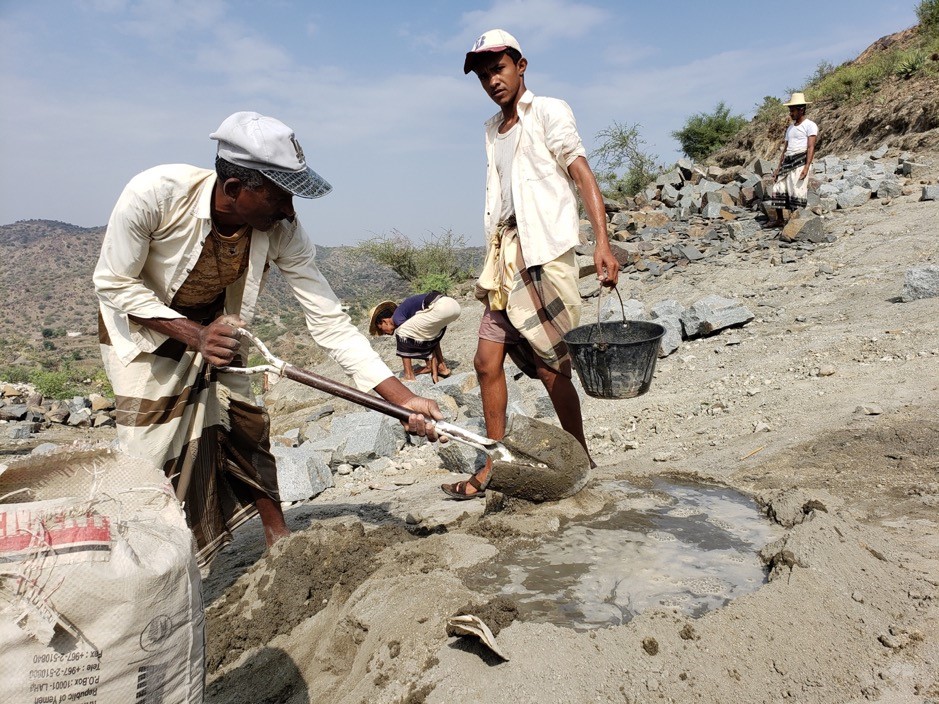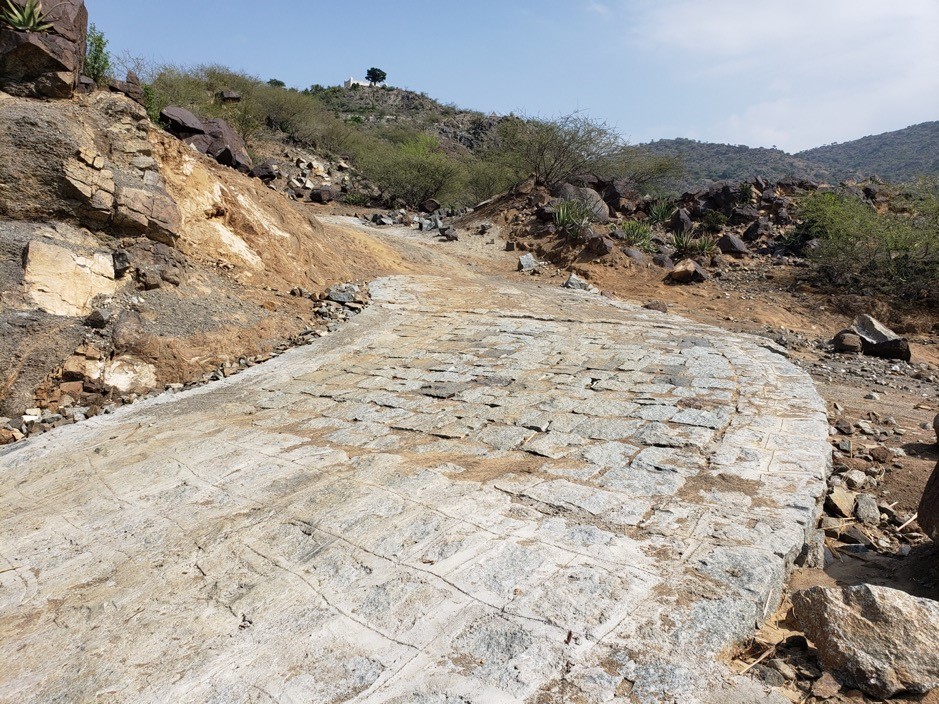Due to the conflict in Yemen which escalated in March 2015, over 24 million people are in need of humanitarian assistance. People have lost jobs and income, and many are not able to meet their basic and immediate needs. Families have lost their primary sources of income and the poverty rate has dramatically increased.
Residents of Bayt Merain village in Kua’aidenah district of Hajjah governorate in northern Yemen were suffering already before the crisis as their only road was destroyed years ago, leaving them no way to easily access local markets to buy the things they need to survive.
Omer Al-Talhi, a 28-year-old father of four children, talks about the villagers’ continued suffering: “Women have to endure carrying food, harvests and water on their heads along the harsh mountain road. If there is a wedding the bride has to walk to her new house rather than going in a car. For years, I used to stop my motorcycle in the valley below because I couldn’t ride it on a road. Imagine you can’t get to your house by vehicle and you have to go on foot.”
In this village, men are forced to carry patients to the nearest village or to the valley where they can find a car. Students can’t go to school because of the lack of a road, and even friends and relatives are disconnected from the villagers in Bayt Merain and can’t visit them.
Fortunately, with funding from the Office of U.S. Foreign Disaster Assistance (OFDA), CARE intervened with cash for work which offered temporary employment opportunities to the villagers. In exchange for income, the men constructed a new road.



